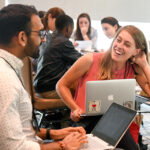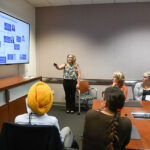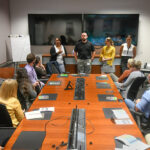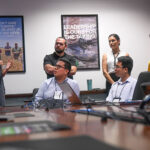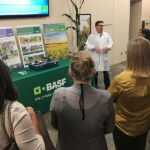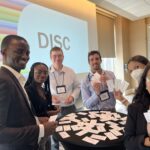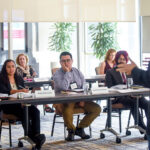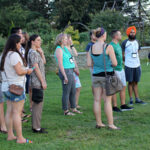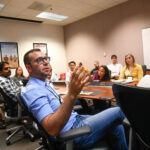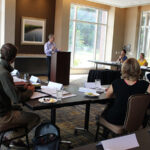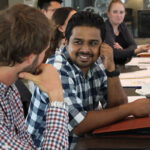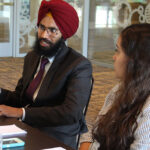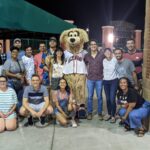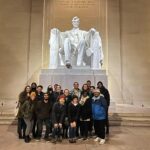Program Overview
The FFAR Fellows Program offers leadership and professional development training to PhD students studying food and agriculture-related sciences in the U.S. and Canada. North Carolina State University leads the initiative, which provides Fellows with training, networking opportunities, and peer support.
Over the 3-year period members of each cohort (~25 fellows) attend five in-person meetings plus monthly virtual sessions, create and execute annual professional development plans, and network and establish mentor-mentee relationships with industry scientists and others outside of academia.
The Fellows Program kicks-off with a one-week orientation session in August at North Carolina State University (NCSU) and a second session at NCSU the following April. These Year 1 sessions and the monthly webinars focus on self-exploration, self-management, creating networks of support (peer, mentor, professional), and improving communication and teamwork skills. The residential sessions include site visits at agriculture industry locations in Research Triangle Park and meetings with industry scientists and commodity group leaders.
In Year 2 of the program Fellows have the opportunity to meet in conjunction with the World Food Prize gathering in Des Moines, Iowa (or another university-based location). The Fellows’ spring Year 2 meeting is held in Washington, D.C., and focuses on policy-making and communications and careers in the public sector.
The Fellows final meeting occurs in the spring of Year 3 at NCSU with a 3-day training on facilitation and participatory change management. Third year fellows also network and mentor members of the newest cohort.
Objectives of the FFAR Fellows Program
- Develop leadership competencies that enhance current and future individual productivity and well-being, and enhance Fellows capacity to contribute to the public good
- Connect young scientists across research domains and geographic areas to promote multi-disciplinary understanding and problem-solving
- Broaden students understanding of their career options and create links to sectors beyond academia (industry, government, NGO)


